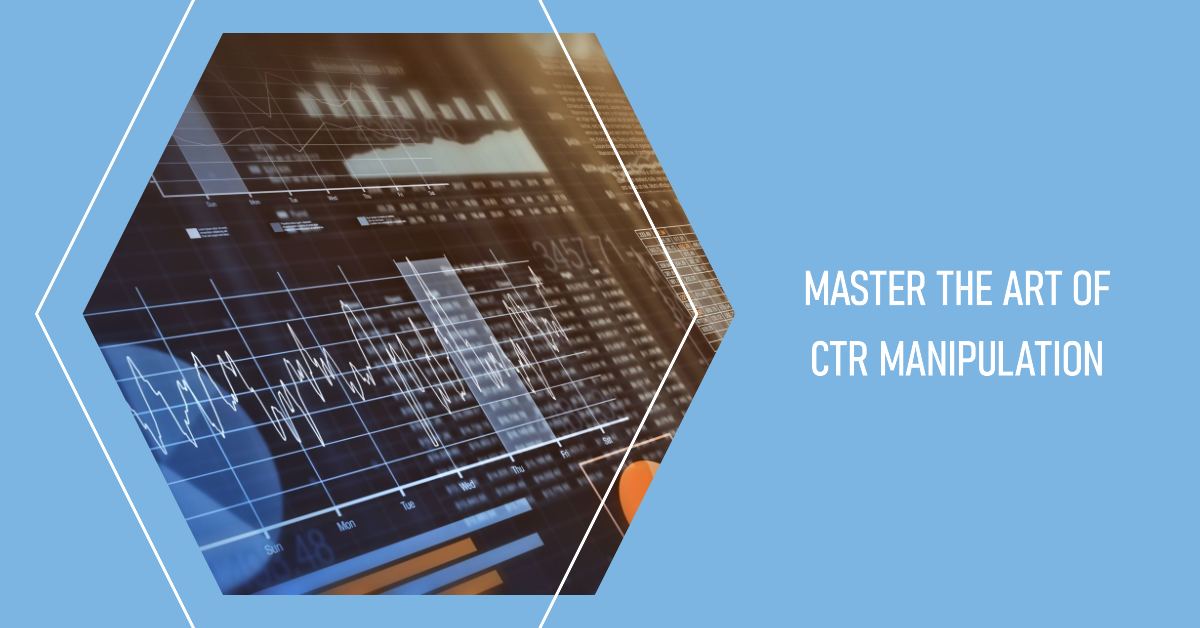Exploring the Relationship In Between CTR Adjustment Services and Customer Behavior
In the world of digital marketing, the influence of click-through price (CTR) adjustment solutions on customer actions continues to be a facility and fascinating topic. By studying the detailed relationship between CTR control solutions and individual behavior, appealing insights arise that might improve our understanding of digital advertising and marketing approaches and their results on consumers.
Impact of CTR Adjustment on Habits
Evaluating the influence of Click-Through Price (CTR) adjustment on individual behavior discloses vital understandings right into the characteristics of online interaction. CTR adjustment involves unnaturally pumping up the number of click a certain link or advertisement to trick individuals and online search engine. This method can lead to an altered assumption of a website's appeal or significance, eventually affecting user actions.

Moreover, CTR control can skew the data made use of by formulas to personalize customer experiences. This can lead to customers being served web content that does not align with their choices or passions, ultimately bring about a decrease in customer satisfaction and interaction. Recognizing the impact of CTR manipulation on customer behavior is necessary for keeping openness and rely on on the internet communications.
User Involvement With Adjusted CTR
User interaction with controlled CTR information usually results in manipulated assumptions of on the internet content appeal and relevance. When individuals interact with content based on artificially inflated Click-Through Rates (CTR), they might think that particular details, items, or solutions are a lot more prominent or reliable than they really are. This can result in individuals choosing based upon misleading information, causing possibly undesirable results.
Involvement metrics like likes, shares, comments, and time invested in a webpage are usually affected by CTR control. Users may be much more inclined to involve with content that appears to have higher interaction rates, further continuing the cycle of skewed assumptions. Because of this, material designers and advertisers may prioritize producing material that generates high CTR as opposed to concentrating on developing truly beneficial and relevant product.

Psychological Results of CTR Manipulation

Moreover, the emotional effects of CTR adjustment can also materialize in modified decision-making processes. Individuals might be more inclined to click on content only based upon its regarded appeal, as opposed to its real value or relevance to their demands. This behavioral change can cause a shallow engagement with on the internet web content, where individuals may forget high-grade however less preferred offerings for those with synthetically enhanced CTRs.
Basically, the psychological implications of CTR manipulation highlight the value of maintaining transparency and credibility in on-line communications to foster real customer engagement and trust fund.
Ethical Considerations in CTR Manipulation
Taking into consideration the ethical effects of manipulating click-through prices (CTR) in on-line systems is important for keeping integrity and trust fund within the digital environment. CTR control raises issues concerning deceiving individuals, misshaping data analytics, and jeopardizing look at this now the reliability of on-line web content. One major moral consideration is the potential influence on user autonomy and decision-making. By synthetically inflating CTR, individuals might be misled into clicking web links or ads they would certainly not have actually chosen otherwise, causing an insincere online experience. CTR manipulation can skew the performance metrics that businesses rely on to make critical choices, inevitably impacting market competitors and customer depend on.
An additional moral aspect to ponder is the justness of controling CTR to gain an unfair advantage over rivals. Involving in such methods not only goes against concepts of justice but likewise threatens the depend on that individuals place in on-line platforms. It is vital for companies and electronic marketing experts to maintain ethical criteria in their methods to ensure openness, trustworthiness, and lasting sustainability in the on the internet setting.
Ramifications for Digital Marketing
With the increasing dependence on digital systems for marketing objectives, the method of adjusting click-through prices (CTR) presents significant ramifications for the effectiveness and stability of electronic marketing methods. CTR manipulation can cause manipulated data analytics, misleading marketing professionals into thinking that their projects are executing much better than they in fact are. This can result in misallocation of resources, with companies buying underperforming methods based upon falsified CTRs. In addition, when individuals recognize that CTRs have actually been adjusted, it can wear down count on the brand, resulting in lasting adverse effects for consumer commitment and brand track record.
In addition, using CTR adjustment solutions can develop an unreasonable affordable landscape, where business that engage in such practices gain a synthetic advantage over those that abide by moral advertising and marketing criteria. This can suppress advancement and imagination in digital marketing, as success comes to be even more regarding manipulation tactics than supplying authentic value straight from the source to consumers. Inevitably, the ramifications of CTR control for digital advertising and marketing prolong beyond temporary gains, affecting the overall sustainability and reliability of marketing initiatives in the digital world.
Final Thought
To conclude, the partnership between CTR manipulation solutions and user actions is complicated and multifaceted. The influence of CTR manipulation on actions, individual involvement with controlled CTR, psychological impacts, ethical factors to consider, and implications for electronic marketing all contribute in shaping this partnership. Comprehending these dynamics is vital for marketing experts and researchers alike in order to browse the ethical ramifications and make the most of the effectiveness of their digital marketing useful reference methods.